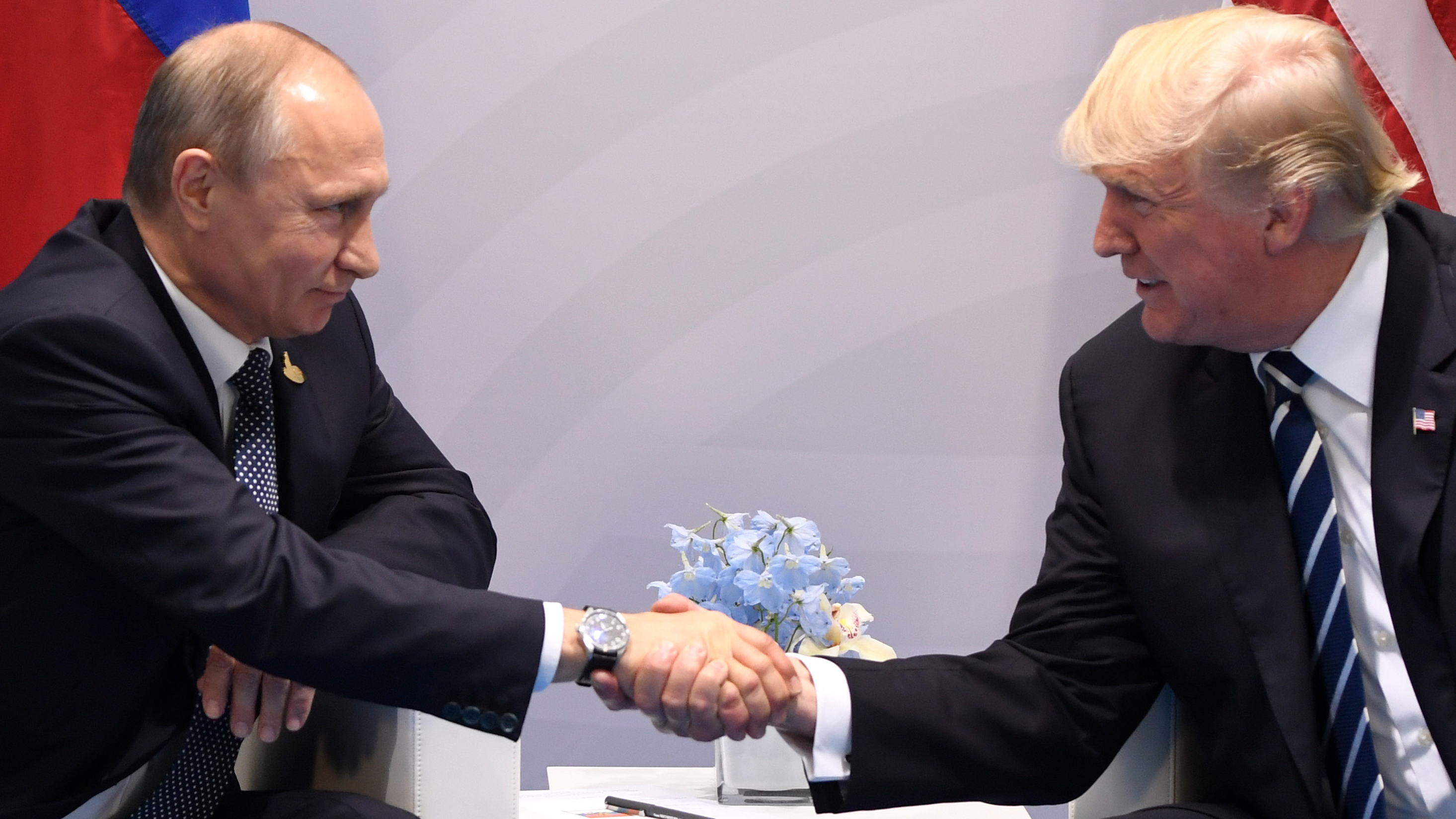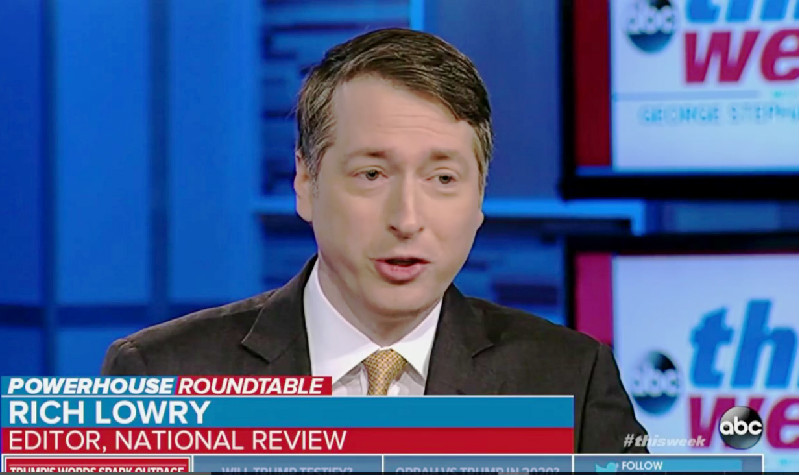
A specter is haunting the West—but this time, the specter is not that of communism, but of Russia. Almost three decades after the collapse of the Soviet Union, the US and its allies, according to most of the Western media, have to contend with a new global menace in its much reduced successor state, the post-communist Russian Federation, which has three-quarters the landmass of the empire that once stretched from the Baltic Sea to the Bering Strait and whose ruling ideology received the support of half the world.
"It is striking, and revelatory of their deep bias, that though liberals and leftists were ready to turn a blind eye toward Soviet ambitions during the Cold War, they are now eager to blame anything that goes wrong in the West on Russian manipulation."
The Russian Federation, though it has a GDP per capita lower than any nation in Europe, is now thought to possess powers far in excess of the Soviet Union that openly sought to dominate the globe. Russia now has the ability, so the Western media declares, to swing elections away from established parties in what recent political science scholarship calls the consolidated democracies. Only Russian manipulation can explain such disruptive and improbable outcomes as the Brexit referendum, the Presidency of Donald Trump, and the parliamentary victories of assorted right-wing populist parties such as the Lega Nord in Italy, Fidesz in Hungary, and the Law and Justice Party in Poland. Liberals, by contrast, dismissed the actual Soviet infiltration of the upper echelons of Western governments as paranoid theatrics.
In reality, the KGB was quite successful in its attempts to penetrate Western governments, laboratories, and other key institutions. Not only did Soviet intelligence manage to steal atomic secrets; their moles reached the senior levels of the Western democracies. One of these agents was Harry Dexter White, the Treasury Department official who presided over the Bretton Woods Conference. After testifying to HUAC that he was not a communist agent, White suffered a heart attack and died three days later at his farm in New Hampshire. The exposure of Günter Guillaume, a close aide to Chancellor Willy Brandt, as a Stasi spy brought about Brandt’s resignation from office. Today, a far less ambitious and much less powerful Russian Federation is said to be capable of sabotaging the democratic process itself, determining the outcome of elections by planting “fake news” stories that pit the citizens of the West against each other over manufactured conflicts. Only Russian interference could have led the masses astray from voting to support the self-evident truths and obviously enlightened values promoted by the liberal establishment.
It is striking, and revelatory of their deep bias, that though liberals and leftists were ready to turn a blind eye toward Soviet ambitions during the Cold War, they are now eager to blame anything that goes wrong in the West on Russian manipulation: the yellow vest protests in France, a measles outbreak in the Ukraine, the increasing strength of the center-right party in Canada in upcoming parliamentary elections, the resurgence of the movement for Catalan independence. Even a Scottish security guard was caught up in the search for an actual, real-life Russian troll, at whom the fearless investigators pointed the finger because he had picked up some English colloquialisms while living and working in England.
Yet, what distinguishes Western Russophobia from all the other great prejudices of the past is that it is now accompanied by a total and willful ignorance of the target country, her culture, and her people. Firstly, it would appear that Russia would be the logical object of national and international animus were the idea of intersectionality to be made into the guiding principle for foreign diplomacy. Multiculturalism has made it difficult for the US to identify any non-white country as a national enemy. China undermines Western tech firms by ripping off their innovations. It has dealt a far more serious blow to US interests than Russia has by rounding up and executing all the informants for the CIA on the ground there. Still, coverage of China has been far less negative than that of Russia since even before Donald Trump took office. The mainstream media, with the exception of Fox News, have given themselves over to anti-Russian hysteria that recalls the excesses of the lunatic fringes of the anti-Communist Right in sounding the alarm over the fluoridation of drinking water and in seeking to ban books by Thoreau and Steinbeck.
Secondly, Russia may have worked with the West to bring a peaceful end to the Cold War, but the West did not respond with gratitude or generosity for this conciliatory resolution. Instead, the West did little to prevent the Russian economy from being looted by a nascent class of oligarchs, and in fact may have done a great deal to speed this process along. The US sent political strategists and polling experts to ensure the re-election of the inept and drunken buffoon Boris Yeltsin, under whose groggy and bloodshot eyes the Russian economy was wrecked and millions of Russians driven into destitution. It would appear that a principal incentive behind the animus towards Russia today arises from one of the darker aspects of human nature: We cannot help but feel hatred towards those whom we injure, because they remind us of our guilt.
Thirdly, Russia represents the values that progressive Westerners seek to overcome within their own countries. It is, quite literally for liberals, a nation of deplorables. Now that in the West one’s attitude toward LGBT rights has become the most important determinant of one’s moral standing, the refusal of Moscow and other cities to give official approval to gay pride parades, and the law passed by the Duma in 2013 that prohibits content depicting homosexuality as a normal practice have earned far more hatred and hostility for Russia among liberal and progressive circles than at any time in the past, including in the aftermath of Stalin’s purges. Russia, in moving away from state socialism towards social conservatism and traditional Christianity, has in effect reversed the course of history as imagined by liberal progressivism. In contemporary parlance, the Russians have the gall to take the wrong side of history.
Meanwhile, it is beyond the imagination of American liberals that there could be good reasons for why so many Russians support Vladimir Putin, who in the most recent election won 76% of the vote. When Putin first took office as President in 2000, a decade of economic policies that privatized the economy had left behind a shattered nation. The elimination of price controls triggered hyperinflation that wiped out the savings of millions. The mafia dominated the economy while ordinary people were forced to cope with shortages of vital necessities. Indeed, while the Soviet Union had been “self-sufficient” in everything except for “bananas, coffee, and coconuts,” store shelves in the new Russia stood empty as both producers and consumers resorted to hoarding. Between 1991 and 1998, the GDP fell by 30%, and its currency suffered a collapse in the wake of the Asian financial crisis. There was a massive flight of capital outside the country, amounting to some 150 billion dollars. By 1999, life expectancy for men had plunged to 59 from 62 during the final years of the Soviet Union.
Although hand-picked by Yeltsin to be his successor, Putin set about to undo the damage wrought by the bungling and mismanagement of his predecessor’s administration. He brought the oligarchs to heel, exiling and imprisoning the most ambitious of the new billionaires. He also cut taxes while nationalizing the oil industry. The country began to experience a high rate of growth, expanding by an average of 7% between 2002 and 2007. Wages of ordinary workers more than doubled during this period. And though economic recovery came about in part due to rising prices for oil, Russians now feel that the misery and despair of the Yeltsin years are solidly behind them. Under Putin’s leadership, the country has made an impressive economic recovery and also emerged as a major global power, punching above its economic weight in the area of foreign policy.
Of course, Russia is not a liberal state, as the Western critics of Putin are always quick to point out. Opponents of his government have been silenced and, in some cases, assassinated. But the choice between the chaotic years of Yeltsin, during which a corrupt and bungling government championed free speech, and the stable order brought about by a government that limits expression of dissent is a clear one for most Russians. Americans, thanks to their historic good fortune, have been spared the bitter dilemma of having to choose between freedom without security and order with restrictions on their liberties. But since the US has never had to suffer being dominated by a hostile and foreign power, it is difficult for Americans to understand the motives and interests of a people who have had to endure being ruled by those whom it regards as “other.” While many Americans had cast their vote for Hillary Clinton with reservations about her character and without agreeing with her on every issue, they seem incapable of recognizing that their Russian counterparts might vote for Putin with similar concerns and doubts. Indeed, according to a recent article by the Saker at The Unz Review, discontent with the slowness of Putin’s political and economic reforms is on the rise.
The only opposition Russians will recognize as legitimate, the Saker points out, is one that is genuinely patriotic and not supported by foreign powers or multinational corporations. Freedom and autonomy for Russians mean being able to live in a country that is not beholden to any outside power, not least the power of the global market. By contrast, for the blinkered American neoconservatives and neoliberals who make up the majority of the US elite, global power and America exist in a mutually reinforcing loop—what is good for America is good for globalism, and vice-versa. Were they forced to choose between supporting the interests of their fellow citizens or the interests of global trade, they would protest that no such choice ever needs to be made, which means, for all intents and purposes, choosing globalism over the nation.
Of course, the Russians and other peoples of the Soviet Union were recognized by their sympathizers in the West as having embarked on a radical political experiment that promised freedom and well-being to millions who had long been oppressed by a quasi-feudal government. Russia would lead the way to creating a new and glorious type of civilization in which the state would at last serve the interests of the working class. The more realistic among the Western leftists, recognizing the risks and hazards inherent to this utopian undertaking, made allowances for its failure. They were far less prepared, however, to see where this same society would land after having attempted to defy the gravitational forces of human nature and to overcome a tragic history that includes brutal invasions by the Mongol horde and by the armies of Napoleon and of Hitler.
Most Russians regard the revival of conservative values in Russia as a relatively mild correction of their worldview rather than as a radical shift in moral values. But that Russia is now more traditional and less liberal than the West is a source of grave dismay to progressives. They are alarmed to find in Russia’s itinerary a future in which the US may likewise become a more socially conservative version of what it is today. Such a future progressives find hateful, not because it would point toward a modus vivendi that keeps the peace by allowing those with differing viewpoints and perspectives to maintain some distance from each other, but rather because it would contradict the utopian vision of a completely inclusive society on which they have staked their claims to authority. The Russian model points to the enduring power of correctional movements against all utopian projects, including the utopia of social justice that summons the full force of the managerial state to crush all meaningful dissent in the name of overcoming hatred and prejudice.

